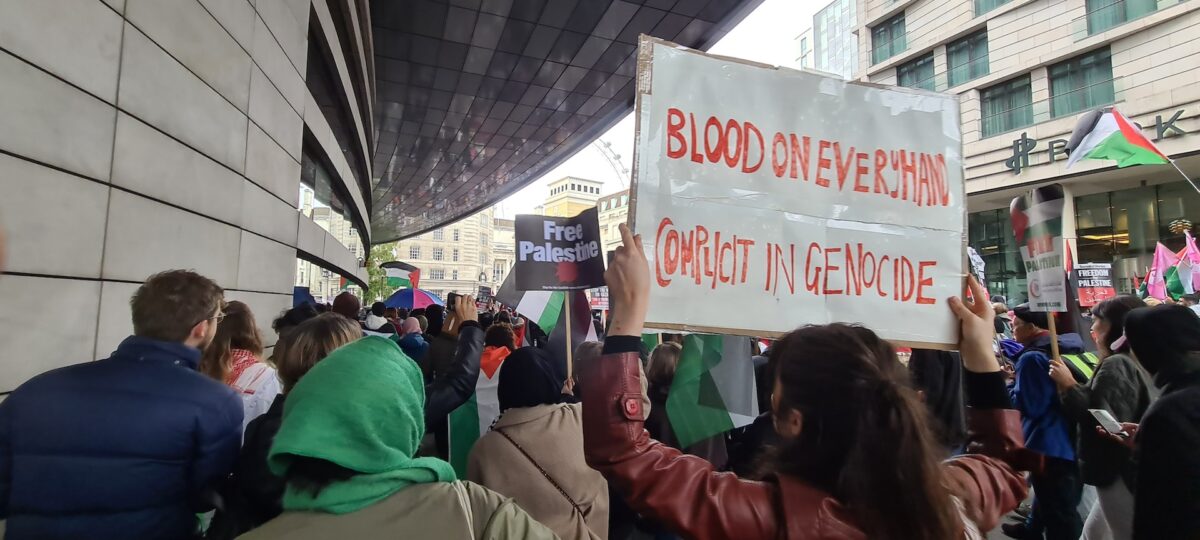There is violence and, within its vast domain, there is political violence, which includes genocides and massacres that are intrinsically political.
Hannah Arendt, who I studied with in New York in the late 1960s, wrote in her book, On Violence, that political violence is basically a sign of weakness and impotence. It indicates a lack of real power. If your authority was firm, there would be no need to employ violence.
After a lecture, a friend and I, budding leftist “revolutionaries,” approached her to explain that she was wrong. Violence, we said, is the essence of the power exercised by those wielding it; racism, poverty, colonization, are forms of it.
She eyed us with exasperation. “Look,” she said, in her direct way, “violence is when he hits you.” She had a point. A mere slap can feel violent in a unique, irreducible way. That sounds like the violence Hamas inflicted on October 7. Stark, frenetic, personal.
In the late 1970s, I visited Mozambique, newly freed from Portuguese colonialism, after a “war of liberation.” I wanted to see their social reforms but they also insisted on a visit to a famed game park — Gorongosa. Once I got there, it was hard to get me out.
One evening on the porch in the compound, they pointed to a line of holes in the wall above us. During the war, they said, a unit infiltrated from the liberated areas up north, to here in the south, still under Portuguese control. They positioned to shoot at the staff and tourists. But they fired over their heads. Why? To prove they had the power to kill but the discipline not to.
It was a message. They passed up the immediate gratification of violence for the greater satisfaction of advancing their cause. I tried for awhile to write a play about it, with animals as characters, but never finished. The key scene would’ve been the fighters’ conflict as they wavered over whether to kill.
Frantz Fanon, the Black Algerian psychiatrist and author (d. 1961) wrote about these dilemmas of political violence. He said it was almost irresistible as a way for colonized, racially demeaned people to regain a sense of dignity. But it inevitably failed, he said, leaving a sense of disgust and sickness because it merely replaced colonial violence with post-colonial violence and hierarchy. The true cure could come only from building a saner reality.
Why am I recounting this? If I could sum it up simply, I’d have done so. What really impelled the slaughterers of Hamas? What truly impels the high-tech, largely depersonalized slaughter by Israel? Is violence and butchery more awful when it’s gruesomely enacted face to face or is the reverse true?
How do you decide which is more unacceptable: impulsive, quasi-intimate personal savagery while even rejoicing in it, or the colder carnage from a detached environment like a jet fighter, a drone console, or a statistical exercise in logistics and technology, which mass murder sometimes becomes?
The question is pointless. Basically, it’s like ranking which genocide was worst. There’ve been so many: East Timor, the African slave trade, extermination of Indigenous Peoples in the Americas, Armenia, the Shoah. As for massacres, the list is endless; Nanjing, My Lai, Rwanda, Darfur, Wounded Knee, Khmelnytsky … Many involved gang rape, including children, with mutilation and burning of bodies. Yet each was also strikingly distinct, so it’s folly trying to rank them.
It leads to ill-informed claims like Pierre Poilievre’s, that October 7 was “a carnage that is almost unprecedented in human history.” Sadly, I’d say it was overprecedented. But acknowledging that doesn’t diminish its meaning. Rather, I’d say, it expands it, locating it within the tragic tapestry of human behaviour, while linking it to other cases of unspeakable, but perhaps some day avoidable, conduct.
I’ve never understood why such events, each uniquely horrific, don’t enlarge our sense of solidarity and connectedness — though that does sometimes occur, along with a resolve that it ought never happen again, anywhere, to anyone.
This column originally appeared in the Toronto Star.



